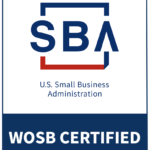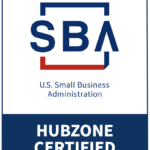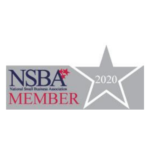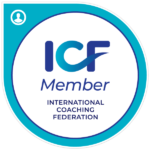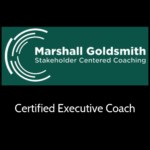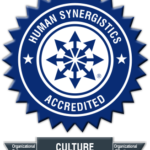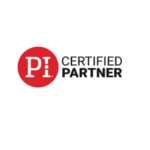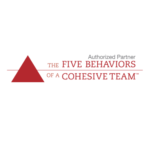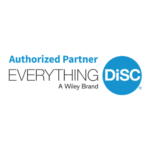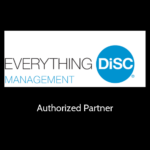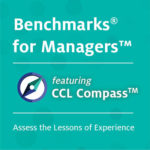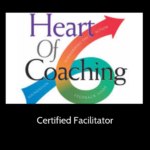TALKING PERFORMANCE WITH YOUR BOSS
Let’s be honest: performance conversations are either comfortable or uncomfortable and can create positive and/or negative emotions/feelings that ultimately impact and effect the workplace in a positive and/or negative way. There are lots of key factors that play into effective performance conversations (timing and pacing, format, preparation, purpose, clarity, honesty, respect, trust, and responsibility, to name a few).
Performance conversations matter most because responsibility, commitment, willingness, and positive and aligned behaviors are a few top reasons employees stay, remain motivated, work cohesively, desire learning and growth, are responsive, curious, and trust openly. The intended results of engaging in performance conversations include acceptance of current state/future state, responsible and productive behaviors, and enhancing and improving performance – effectiveness of current role and responsibilities as aligned to company philosophy, strategy, and goals.
Where the rubber meets the road with performance conversations truly lies within the WHAT and the HOW. Both the boss and the employee hold responsibility to create effectiveness in performance. The emotions, feelings, assumptions, choice of words and language tonality, and other approaches and styles of preparations, when neglected or not prioritized, often result in distorted misunderstandings, broken trust, damaged relationships, and negative consequences that lead to disengagement, resentment, and dysfunction in individual and team performance. And we know where disengagement leads – attrition.
To shift the outcomes to positive experiences and opportunities, these important conversations are designed to be short, brief, relevant, influential, motivational, and specific, must be prioritized and prepared for. The data is shared in-advance for preparation and support. Both parties enter the dialogue with an open mind, state of curiosity, and knowing there is opportunity to create value, growth, and learning. To experience positive dialogue and results from performance conversations, the boss and employee both demonstrate and exhibit constructive behaviors that lean into curiosity, openness, humility, courage, discipline, achievement, encouragement, affiliative, and self-actualizing. These open, honest, and productive dialogue and debate are aligned and purposefully re-engage both with newfound motivation that optimizes strengths, competencies, and skills for executing strategy and achieving collective results constructively – Leaving ego at the door, assuming positive intent, and being wide-open to possibilities.
Most of the time employees are not sure or fear these conversations and will procrastinate and avoid the simple organization and outlining needed to set the table for positive results. Let’s look at ten performance preparation tips that support creating a responsible and positive performance dialogue experience:
10 PREPARATION TIPS FOR TALKING ABOUT PERFORMANCE
- RESPONSIBLE AND HONEST SELF-ASSESSMENT
- Behavioral Alignment
- How are you personally aligned to the company’s Core Values?
- What about that alignment motivates you in your daily work?
- Job Description Alignment
- What’s aligned?
- What is not aligned? What can be improved, learned, or changed to support this?
- What are you enjoying about your job? What would make it more enjoyable?
- What are you enjoying about working with others (Teams, Cross-functionally)? What would make it more enjoyable?
- What current obstacles/concerns do you have about your job? What resources do you need right now to improve the current situation/circumstance?
- What are your top 3 areas where you add value? How your performance plays a key role in the company’s success?
- What is your #1 career aspiration?
- Share your insights and responses with your boss in advance to your meeting. Ask for written response and feedback.
- Behavioral Alignment
- UNDERSTANDING AND ACCEPTING – FEEDBACK AS INFORMATION
- Accept that performance feedback is in your best interest and the information shared is to inform, explore (curiosity), and clarify.
- The information provided and discussed is a tool for building trust, acceptance, validation, discovery, growth, and learning.
- When egos and negative emotions/feelings are intentionally removed there is only room for creating abundance, opportunity, and growth.
- PREPARATION – Are you ready?
- Locating yourself: Above or Below? (Conscious Leadership, Line Model)
- If below (resistance, threat, defensiveness, and reactive), there is work to be done on your willingness, acceptance, and trust.
- Are you ready to be 100% responsible for the circumstances, without and/or limiting drama, of your experience and satisfaction at work, your job role and responsibilities, building trusted relationships, working cohesively, inviting and holding productive dialogue and debate, and achieving collective results?
- What is your intention?
- What is the true purpose?
- What resources do you need to access?
- Develop your draft statements to be shared in advance to your performance conversation with your boss (Keep it brief, relevant, and specific).
- Locating yourself: Above or Below? (Conscious Leadership, Line Model)
- ALIGNMENT
- Company Philosophy (Vision, Mission, Values)
- Company Strategy, Goals, and Objectives
- Personal Core Values
- Personal Leadership Philosophy
- Personal Strengths, Motivators, Competency, and Skills
- Job Description Roles/Responsibilities
- Project Assignments
- SUMMARIZING PROGRESS, KEY MILESTONES/EVENTS, ACCOMPLISHMENTS
- Provide no more than three (3) key performance examples where you provided value. Be specific, relevant, and brief.
- IDENTIFY STARTS, STOPS, DO MORE OF, DO LESS OF, DELEGATE/FOLLOW UP
- What do you need to start doing?
- What do you need to stop doing?
- What do you need to do more of?
- What do you need to do less of?
- What do you need to delegate and follow up on?
- LIST AREAS FOR OPPORTUNITY, GROWTH, AND LEARNING
- Brainstorm and write down all your thoughts.
- Identify and select your top three (3) to be documented and sent prior to holding your performance conversation with your boss.
- PRIORITIZE
- This conversation is a 15 MINUTE CONVERSATION WITH YOUR BOSS.
- Pre-conversation, organize and document all your thoughts, ideas, recommendations, etc…, and send in-advance to your boss for their review, reference, and preparations.
- Identify what your top three (3) conversation topic priorities are and let your boss know in-advance.
- ACTION PLAN
- What will you take full responsibility for regarding your roles, development, learning, growth, and collaboration to execute strategy and achieve collective results while upholding the Company’s philosophies?
- Identify top three (3) short-term and long-term actions you will commit to, act on, engage with, and ensure success for.
- MAKE AN IMPECCABLE AGREEMENT WITH YOUR BOSS
- The last agenda item is to build trust through executing an impeccable agreement with your boss and you.
- Write up your agreement to each other, and both of you sign it. The results are often exponential and positive in nature and interaction going forward.
This informal approach to prepare, communicate, and hold space for creating value around performance offers employees an empowered process for positive change and relational and organizational resolution, as well as continued achievement, learning, and growth for all parties involved.
CALL TO ACTION – Develop your Personal Performance document using the 10 tips above. (Keep it specific and brief). Schedule your 15-minute Performance Conversation with your boss and attach your Personal Performance document.
Remember, the goal is effectiveness through self-awareness of strengths, motivators, competencies, and skills that are optimized so that you may optimize others to Maximize Excellence!
~~~~~~~~~~~~~~~~~~~~~~~~~~~~~~~~~~~~~~~~~~~~~~~~~~~
About the Author: Lori Harris is Co-Founder/Co-Owner and Managing Partner of Harris Whitesell Consulting. She is an experienced Talent Management Executive providing world-class service in Organizational & Culture Effectiveness| Talent Optimization| Organizational, Executive, Leadership & Team Development & Coaching | People Data Expert | Author, Speaker, and Thought Leader.
Harris Whitesell Consulting, LLC., is a human resources and talent management consulting firm headquartered in Wilmington, North Carolina. Our mission is to create valued partnerships based on trust, excellence, and impact – from assessment to action. We offer assessment, coaching, development, culture and engagement, change and transition, talent optimization, and customer strategy solutions. Our team of certified and highly qualified experts maximize organizational and leadership effectiveness and business success by working with people and businesses to accelerate value, optimize growth and opportunities for their leaders, teams, and organizational success! We maximize excellence!
Learn more about our services – visit our website: https://harriswhitesellconsulting.com, email us at info@harriswhitesellconsulting.com, call us at +1 (910) 409-0202, and…connect, follow and reach out to us on LinkedIn at: https://www.linkedin.com/company/hwconsult.


